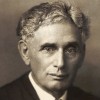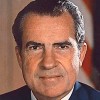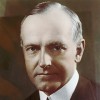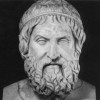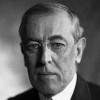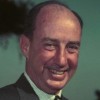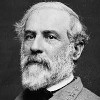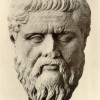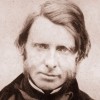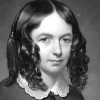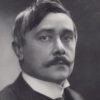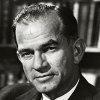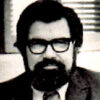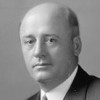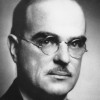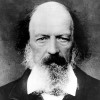While utterly discarding all creeds, and denying the truth of all religions, there is neither in my heart nor upon my lips a sneer for the hopeful, loving and tender souls who believe that from all this discord will result a perfect harmony; that every evil will in some mysterious way become a good, and that above and over all there is a being who, in some way, will reclaim and glorify every one of the children of men; but for those who heartlessly try to prove that salvation is almost impossible; that damnation is almost certain; that the highway of the universe leads to hell; who fill life with fear and death with horror; who curse the cradle and mock the tomb, it is impossible to entertain other than feelings of pity, contempt and scorn.
Administrivia: E-mail Quote of the Day!
Interested in getting quotations delivered right to your e-mailbox daily? Have we got a deal for you!
I have a Feedburner e-mail feed set up for this site. While it won’t select a random quote, it will send you a copy of every quote I add to WIST (usually 3-4 each weekday). That’s not a single Quote of the Day, but 3-4 Quotes of the Day! What a deal!
You’ll get an e-mail each evening titled “Your WIST quotation update.” It’s all handled through Feedburner, and you can unsubscribe at any time.
Just click here.
Publicity is justly commended as a remedy for social and industrial diseases. Sunlight is said to be the best of disinfectants; electric light the most efficient policeman.
There is no such thing as a nonpolitical speech by a politician.
The holiest of holidays are those
Kept by ourselves in silence and apart;
The secret anniversaries of the heart,
When the full river of feeling overflows.
Nothing in the World can take the place of persistence. Talent will not; nothing is more common than unsuccessful men with talent. Genius will not; unrewarded genius is almost a proverb. Education will not; the world is full of educated derelicts. Persistence and determination are omnipotent. The slogan “press on” has solved and always will solve the problems of the human race.
Never give in, never give in, never, never, never — in nothing, great or small, large or petty — never give in except to convictions of honour and good sense. Never yield to force; never yield to the apparently overwhelming might of the enemy.
Winston Churchill (1874-1965) British statesman and author
Speech, Harrow School, England (1941-10-29)
(Source)
We grant no dukedoms to the few,
We hold like rights and shall; —
Equal on Sunday in the pew,
On Monday in the mall.
For what avail the plough or sail,
Or land or life, if freedom fail?
Few men have the natural strength to honour a friend’s success without envy. … I well know that mirror of friendship, shadow of a shade.
If I were to attempt to put my political philosophy tonight into a single phrase, it would be this: Trust the people. Trust their good sense, their decency, their fortitude, their faith. Trust them with the facts. Trust them with the great decisions. And fix as our guiding star the passion to create a society where people can fulfill their own best selves — where no American is held down by race or color, by worldly condition or social status, from gaining what his character earns him as an American citizen, as a human being and as a child of God.
It is clear that the most elementary condition, if thought is to be free, is the absence of legal penalties for the expression of opinions. No great country has yet reached to this level, although most of them think they have. The opinions which are still persecuted strike the majority as so monstrous and immoral that the general principle of toleration can not be held to apply to them. But this is exactly the same view as that which made possible the tortures of the Inquisition. There was a time when Protestantism seemed as wicked as Bolshevism seems now.
Bertrand Russell (1872-1970) English mathematician and philosopher
“Free Thought and Official Propaganda,” lecture, South Place Institute, London (1922-03-24)
(Source)
A member of the Cabinet congratulated Wilson on introducing the vogue of short speeches and asked him about the time it took him to prepare his speeches. He said: “It depends. If I am to speak ten minutes, I need a week for preparation; if fifteen minutes, three days; if half an hour, two days; if an hour, I am ready now.”
Administrivia: Upgrade
I’ve updated this blog to MT 4.01. It appears to have gone smoothly, and everything seems to be working, but if you run across any problems, please don’t hesitate to contact me.
The opinions that are held with passion are always those for which no good ground exists; indeed the passion is the measure of the holder’s lack of rational conviction. Opinions in politics and religion are almost always held passionately.
For the great enemy of truth is very often not the lie — deliberate, contrived and dishonest — but the myth — persistent, persuasive, and unrealistic. Too often we hold fast to the cliches of our forebears. We subject all facts to a prefabricated set of interpretations. We enjoy the comfort of opinion without the discomfort of thought.
John F. Kennedy (1917-1963) US President (1961-63)
Commencement Address, Yale University (1962-06-11)
(Source)
I generalized rashly: That is what kills political writing, this absurd pretence that you are delivering a great utterance. You never do. You are just a puzzled man making notes about what you think. You are not building the Pantheon, then why act like a graven image? You are drawing sketches in the sand which the sea will wash away.
Great nations write their autobiographies in three manuscripts, the book of their deeds, the book of their words and the book of their art. Not one of these books can be understood unless we read the two others, but of the three the only trustworthy one is the last.
The plea of good intentions is not one that can be allowed to have much weight in passing historical judgment upon a man whose wrong-headedness and distorted way of looking at things produced, or helped to produce, such incalculable evil; there is a wide political applicability in the remark attributed to a famous Texan, to the effect that he might, in the end, pardon a man who shot him on purpose, but that he would surely never forgive one who did so accidentally.
At thirty, man suspects himself a fool;
Knows it at forty, and reforms his plan;
At fifty, chides his infamous delay,
Pushes his prudent purpose to resolve;
In all the magnanimity of thought
Resolves, and re-resolves; then dies the same.
And why? Because he thinks himself immortal.
All men think all men mortal but themselves.Edward Young (1683-1765) English poet
The Complaint: Or, Night Thoughts, Vol. 1, No. 1 “Night the First: On Death, Life, and Immortality,” l. 418ff (1742-05) (1744)
(Source)
It is said an Eastern monarch once charged his wise men to invent him a sentence, to be ever in view, and which should be true and appropriate in all times and situations. They presented him the words: “And this, too, shall pass away.” How much it expresses! How chastening in the hour of pride! — how consoling in the depth of affliction!
Even if we accept, as the basic tenet of true democracy, that one moron is equal to one genius, is it necessary to go a further step and hold that two morons are better than one genius?
Leó Szilárd (1898-1964) Hungarian-American physicist
The Voice of the Dolphins and Other Stories (1961)
Variant: "I’m all in favor of the democratic principle that one idiot is as good as one genius, but I draw the line when someone takes the next step and concludes that two idiots are better than one genius." In "Some Szilardisms on War, Fame, Peace", LIFE (1 Sep 1961)
Hope has two beautiful daughters. Their names are anger and courage; anger at the way things are, and courage to see that they do not remain the way they are.
The mind is never satisfied with the objects immediately before it, but is always breaking away from the present moment, and losing itself in schemes of future felicity …. The natural flights of the human mind are not from pleasure to pleasure, but from hope to hope.
Samuel Johnson (1709-1784) English writer, lexicographer, critic
The Rambler, #2 (24 Mar 1750)
(Source)
If I have been wrong in my agnosticism, when I die I’ll walk up to God in a manly way and say, “Sir, I made an honest mistake.”
No man who is not willing to bear arms and to fight for his rights can give a good reason why he should be entitled to the privilege of living in a free community.
With heapy Fires our chearful Hearth is crown’d;
And Firs for Torches in the Woods abound:
We fear not more the Winds, and wintry Cold,
Than Streams the Banks, or Wolves the bleating Fold.[Hic focus et taedae pingues, hic plurimus ignis
semper, et adsidua postes fuligine nigri;
hic tantum Boreae curamus frigora, quantum
aut numerum lupus, aut torrentia flumina ripas.]Virgil (70-19 BC) Roman poet [b. Publius Vergilius Maro; also Vergil]
Eclogues [Eclogae, Bucolics, Pastorals], No. 7 “Meliboeus,” l. 49ff (7.49-52) [Thyrsis] (42-38 BC) [tr. Dryden (1709), l. 70ff]
(Source)
Francis Bacon refers to Virgil's use of a Latin proverb about wolves not caring about the numbers of sheep they face.
(Source (Latin)). Alternate translations:
A hearth, fat Pyne, nor ample fire we lack,
With daily smoke, our Chimney peeces black:
The cold of Boreas here we fear no more,
Than Wolves our Cattell, or fierce streams the shore.
[tr. Ogilby (1649)]
Here on this hearth, with resinous billets piled,
The pine-branch blazes; and the rafters, soil'd
With constant smoke, bespeak the warmth within:
Nor more we care for winter's snow-clad scene
Than wolves respect the numbers of the fold,
Or streams their banks, in mountain-torrent rolled.
[tr. Wrangham (1830), l. 67ff]
Here is a glowing hearth, and resinous torches; here is always a great fire, and lintels sooted with conitnual smoke. here we just as much regard the cold of Boreas, as either wolf does the number [of sheep], or impetuous rivers their banks.
[tr. Davidson (1854)]
Warm hearth, good faggots, and great fires you'll find
In my home: black with smoke are all its planks:
We laugh, who're in it, at the chill north wind,
As wolves at troops of sheep, mad streams at banks.
[tr. Calverley (c. 1871)]
Here is a glowing hearth, and oily brands of pine, here an everblazing fire, and door-posts black with never-ceasing soot; sitting here we heed the chilly blasts of Boreas just as much as the wolf heeds the number of the flock, or torrent floods the bank.
[tr. Wilkins (1873)]
Great store of wood, the unctuous pine.
The smoke-stained rafter, all are mine:
I fear no more the northern cold
Than floods the reeds, or wolves the fold.
[tr. King (1882), l. 648ff]
Here with fat logs heap'd up for winter store,
Plenty as heart could wish, our fagots roar:
With smoke the groins and girders always black,
And boar's chine seasoning in the chimney rack,
We care as much for the North wind or frost,
As wolves for number of the fleecy host,
Or mountain torrent for its bank, when first
O'er granite peaks a lowering cloud has burst.
[tr. Palmer (1883)]
Here is a hearth, and resinous logs, here fire
unstinted, and doors black with ceaseless smoke.
Here heed we Boreas' icy breath as much
as the wolf heeds the number of the flock,
or furious rivers their restraining banks.
[tr. Greenough (1895)]
Here is a glowing hearth, and resinous torches ; here is always plenty of fire, and lintels blackened with continual smoke. Here we as much regard the cold of Boreas as either the wolf does the number [of the sheep], or foaming rivers their banks.
[tr. Bryce (1897)]
Here is the hearth and resinous billets; here the fire ever burns high and the doorposts are black with constant soot: here we care as much for the freezing North as the wolf for the flock's multitude, or rivers in flood for their banks.
[tr. Mackail (1899)]
Here glows a ruddy hearth, with pitch pine logs
Ever alight -- and doorposts, black with smoke.
We heed no more the northern cold, than does
The wolf the flock, or flooded streams their banks.
[tr. Mackail/Cardew (1908)]
My hearth is piled with faggots of pitch-pine.
Free burns my faithful fire, and every hour
My walls are black with smoke; we heed no more
The frosts of Boreas than the wild wolf fears
The gathered sheep, or swollen stream its shore.
[tr. Williams (1915)]
With me you will find a hearth and pitchy brands; with me a good fire ever blazing and doorposts black with many a layer of soot. Here we care as much for the chill blasts of Boreas as the wolf for the number of sheep or rushing torrents for their banks.
[tr. Fairclough (Loeb) (1916)]
Here are fires never-failing and pine-faggots good
Under soot-blackened rafter we laugh at the cold,
As high banks are laught at by rivers in flood,
Or as one wolf derideth the numberless fold.
[tr. Royds (1922)]
Here is the hearth, logs rich in resin, a big fire all the time, and doorposts blackened by the constant smoke. We care as little here about the North Wind and the cold as a wolf cares for numbers, or rivers for their banks in time of spate.
[tr. Rieu (1949)]
Here we have pitch-pine logs and a blazing hearth-fire
With uprights always sootily flagged: we are harassed
No more by northern blizzards than wolves are flustered
By sheep in hosts or torrents by bordering boulders.
[tr. Johnson (1960)]
Oh here’s a hearth and pine logs in plenty,
doorposts black with winter-long smoke:
What are sheep-hordes to wolf, or high banks to flood-water?
what do we care for the north wind’s cold stroke?
[tr. Day Lewis (1963)]
We have a hearth with a fire that's always going,
Fed with resiny pinelogs from the woods;
Doorposts black with soot; we're bothered by
The winter cold no more than wolves by sheep
Or torrents by the banks that try to hold them.
[tr. Ferry (1999)]
Here is a hearth, and soaked pine torches, here a good fire
always, and door posts ever black with soot:
here we care as much for the freezing Northern gale,
as wolves for counting sheep, foaming rivers for their banks.
[tr. Kline (2001)]
Here is the hearth and the well-fueled torches, here
there's always an abundant fire, and the doorposts
are black with constant soot. Here we heed the
North Wind's blasts just as much as the wolf heeds
the number or the raging rivers heed their banks.
[tr. Bestiara Latina (2006)]
When public men indulge themselves in abuse, when they deny others a fair trial, when they resort to innuendo and insinuation, to libel, scandal, and suspicion, then our democratic society is outraged, and democracy is baffled. It has no apparatus to deal with the boor, the liar, the lout, and the antidemocrat in general.
If the world should blow itself up, the last audible voice would be that of an expert saying it can’t be done.
Peter Ustinov (1921-2004) English actor, author, director
Newspaper column, The European
Rarely cited. Referenced here, and reprinted in Ustinov Still At Large (1995).
The wolf also shall dwell with the lamb, and the leopard shall lie down with the kid; and the calf and the young lion and the fatling together; and a little child shall lead them.
The Bible (The Old Testament) (14th - 2nd C BC) Judeo-Christian sacred scripture [Tanakh, Hebrew Bible], incl. the Apocrypha (Deuterocanonicals)
Isaiah 11:6 [KJV (1611)]
(Source)
Alternate translations:
Wolves and sheep will live together in peace,
and leopards will lie down with young goats.
Calves and lion cubs will feed together,
and little children will take care of them.
[GNT (1976)]
The wolf will live with the lamb, the panther lie down with the kid, calf, lion and fat-stock beast together, with a little boy to lead them.
[NJB (1985)]
The wolf shall dwell with the lamb,
The leopard lie down with the kid;
The calf, the beast of prey, and the fatling together,
With a little boy to herd them.
[JPS (1985)]
The wolf shall live with the lamb;
the leopard shall lie down with the kid;
the calf and the lion will feed together,
and a little child shall lead them.
[NRSV (1989 ed.)]
Manhood begins when we have in any way made truce with Necessity; begins even when we have surrendered to Necessity, as the most part only do; but begins joyfully and hopefully only when we have reconciled ourselves to Necessity; and thus, in reality, triumphed over it, and felt that in Necessity we are free.
Thomas Carlyle (1795-1881) Scottish essayist and historian
“Burns,” Edinburgh Review No. 96, Art. 1 (1828-12)
(Source)
A review of Lockhart, The Life of Robert Burns (1828).
Our ignorance of history makes us calumniate our own time. We have always been like this. Some calm years have deceived us. That is all. I too believed in the softening of manners. We must erase this error and esteem ourselves no more than people esteemed themselves in the time of Pericles or Shakespeare, atrocious epochs in which fine things were done.
[On a toujours été comme ça. Quelques années de calme nous ont trompés. Voilà tout. Moi aussi, je croyais à l’adoucissement des mœurs. Il faut rayer cette erreur et ne pas s’estimer plus qu’on ne s’estimait du temps de Péricles ou de Shakespeare, époques atroces où on a fait de belles choses.]
Gustave Flaubert (1821-1880) French writer, novelist
Letter to George Sand (8 Sep 1871) [tr. Tarver]
(Source)
Original French.
Alternate translation: "Our ignorance of history causes us to slander our own times."
Finally, I believe in an America where religious intolerance will someday end — where all men and all churches are treated as equal — where every man has the same right to attend or not attend the church of his choice — where there is no Catholic vote, no anti-Catholic vote, no bloc voting of any kind — and where Catholics, Protestants and Jews, at both the lay and pastoral level, will refrain from those attitudes of disdain and division which have so often marred their works in the past, and promote instead the American ideal of brotherhood.
John F. Kennedy (1917-1963) US President (1961-63)
Speech, Greater Houston Ministerial Association (12 Sep 1960)
(Source)
Competence, like truth, beauty and contact lenses, is in the eye of the beholder.
Lawrence J. Peter (1919-1990) American educator, management theorist
The Peter Principle (1969)
See Richard Cumberland.
You’ll never get mixed up if you simply tell the truth. Then you don’t have to remember what you have said, and you never forget what you have said.
I would say here something that was heard from an ecclesiastic of the most eminent degree; “That the intention of the Holy Ghost is to teach us how one goes to heaven, not how the heaven goes.”
I hold it true, whate’er befall;
I feel it, when I sorrow most;
‘Tis better to have loved and lost
Than never to have loved at all.
Love is the magician, the enchanter, that changes worthless things to joy, and makes right royal kings and queens of common clay. It is the perfume of that wondrous flower, the heart, and without that sacred passion, that divine swoon, we are less than beasts; but with it, earth is heaven, and we are gods.
It is loneliness that makes the loudest noise. This is as true of men as of dogs.
Eric Hoffer (1902-1983) American writer, philosopher, longshoreman
“Thoughts of Eric Hoffer,” New York Times Magazine (1971-04-25)
(Source)
Only those are fit to live who do not fear to die; and none are fit to die who have shrunk from the joy of life and the duty of life. Both life and death are parts of the same Great Adventure.


